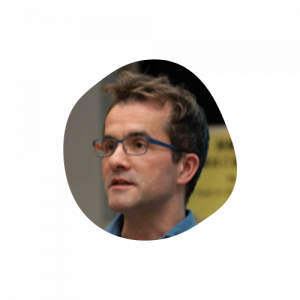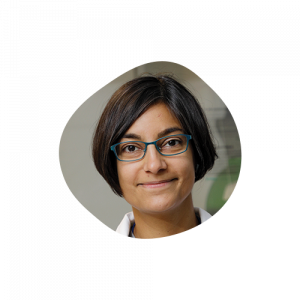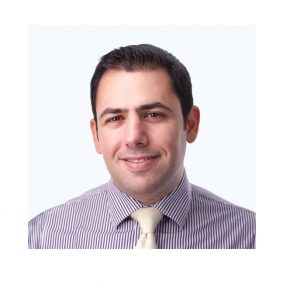Levels of memory research
Gisella Vetere (ESPCI Paris)
 Gisella Vetere is Professor at ESPCI Paris. Her Cerebral Codes and Circuits Connectivity group studies the neural mechanisms governing memory acquisition and consolidation in mice and how these processes change neural plasticity.
Gisella Vetere is Professor at ESPCI Paris. Her Cerebral Codes and Circuits Connectivity group studies the neural mechanisms governing memory acquisition and consolidation in mice and how these processes change neural plasticity.
Michael Kiebler (LMU Munich)
 Michael Kiebler is Professor at LMU Munich. His lab explores how individual synapses are altered during their lifetime and how this contributes to our ability to learn and remember. A particular focus is dendritic RNA localization and subsequent translational control at the synapse, where RNA-binding proteins (RBPs) play an essential role. In collaboration with the Ninkovic lab, they are investigating how RBPs contribute to neurogenesis and reprogramming.
Michael Kiebler is Professor at LMU Munich. His lab explores how individual synapses are altered during their lifetime and how this contributes to our ability to learn and remember. A particular focus is dendritic RNA localization and subsequent translational control at the synapse, where RNA-binding proteins (RBPs) play an essential role. In collaboration with the Ninkovic lab, they are investigating how RBPs contribute to neurogenesis and reprogramming.
Edwin M. Robertson (University of Glasgow)
 Edwin M. Robertson is Professor of Brain and Cognitive Sciences at the University of Glasgow. His work focuses upon 1) the sharing or “leak” of information between different memory systems; 2) understanding the mechanisms that control the engagement of offline processing over different brain states (sleep vs. wakefulness) and 3) identifying the functional contributions of offline processing including generalizing across different experiences. He uses a combination of behavioral analysis, imaging, and Transcranial Magnetic Stimulation (TMS) in his work.
Edwin M. Robertson is Professor of Brain and Cognitive Sciences at the University of Glasgow. His work focuses upon 1) the sharing or “leak” of information between different memory systems; 2) understanding the mechanisms that control the engagement of offline processing over different brain states (sleep vs. wakefulness) and 3) identifying the functional contributions of offline processing including generalizing across different experiences. He uses a combination of behavioral analysis, imaging, and Transcranial Magnetic Stimulation (TMS) in his work.
Miriam Nokia (University of Jyväskylä)
 Miriam Nokia is Associate Professor at University of Jyväskylä. Her research group studies the neural basis of learning and memory, currently looking into optimizing learning based on bodily oscillations and how the hippocampal dentate gyrus regulates memory formation.
Miriam Nokia is Associate Professor at University of Jyväskylä. Her research group studies the neural basis of learning and memory, currently looking into optimizing learning based on bodily oscillations and how the hippocampal dentate gyrus regulates memory formation.
Ethics, Funding and Publishing in Neuroscience
Päivi Kolu (Research council of Finland)
 Dr Päivi Kolu is Science policy and international cooperation specialist at Research Council of Finland. She chairs the Research Council of Finland’s team for responsible conduct of research and is a member of Science Europe’s Task force on Research Integrity. She holds a PhD in molecular biology and has been involved in the development and implementation of international multi-funder programs focusing on e.g., neurodegenerative diseases, food security and sustainable agriculture, renewable energy, and sustainable blue economy.
Dr Päivi Kolu is Science policy and international cooperation specialist at Research Council of Finland. She chairs the Research Council of Finland’s team for responsible conduct of research and is a member of Science Europe’s Task force on Research Integrity. She holds a PhD in molecular biology and has been involved in the development and implementation of international multi-funder programs focusing on e.g., neurodegenerative diseases, food security and sustainable agriculture, renewable energy, and sustainable blue economy.
John Foxe (University of Rochester)
 John Foxe is an Irish Neuroscientist with a history of basic research studies into the neurophysiology of multisensory integration and attention. He works to translate new understanding generated in his basic research program to advance understanding of the neuropathology underlying a number of neurodevelopmental and psychiatric conditions. Special emphasis is placed on the identification of endophenotypes (neuromarkers) of disease, in linking these biomarkers to the underlying genotype, and in associating these markers with clinical manifestations. He has worked extensively in neurodevelopmental disorders such as Autism, Rett Syndrome, and other rare diseases of neurodevelopment, successfully gathering large-scale neuroimaging and neurophysiological datasets from these vulnerable and often difficult-to-test populations. He is Editor-in-Chief of The European Journal of Neuroscience, the official journal of the Federation of European Neuroscience Societies (FENS). He has published over 340 peer-reviewed papers (H-Index = 102).
John Foxe is an Irish Neuroscientist with a history of basic research studies into the neurophysiology of multisensory integration and attention. He works to translate new understanding generated in his basic research program to advance understanding of the neuropathology underlying a number of neurodevelopmental and psychiatric conditions. Special emphasis is placed on the identification of endophenotypes (neuromarkers) of disease, in linking these biomarkers to the underlying genotype, and in associating these markers with clinical manifestations. He has worked extensively in neurodevelopmental disorders such as Autism, Rett Syndrome, and other rare diseases of neurodevelopment, successfully gathering large-scale neuroimaging and neurophysiological datasets from these vulnerable and often difficult-to-test populations. He is Editor-in-Chief of The European Journal of Neuroscience, the official journal of the Federation of European Neuroscience Societies (FENS). He has published over 340 peer-reviewed papers (H-Index = 102).
Monique Havermans (European Animal Research Association)

Monique Havermans is a PhD student at the University Hospital in Freiburg, Germany. In her doctoral research she uses in vitro and in vivo models to dissect the response of macrophages to degenerating neurons.
She coordinates the Dutch Transparency Agreement on Animal Research and is the Dutch Twitter ambassador for the European Animal Research Association (EARA).
Brain dynamics
Joachim Gross (University of Münster)
 Professor Joachim Gross is Director of the Institute for Biomagnetism and Biosignal analysis at the University of Muenster, Germany. His research focuses on the role of brain rhythms in brain function and dysfunction. In addition, he is interested in the interaction between body and brain rhythms and their change in health and disease. He uses MEG, EEG and neurostimulation techniques and is involved in the development and application of smartphone-based sensing devices for digital phenotyping.
Professor Joachim Gross is Director of the Institute for Biomagnetism and Biosignal analysis at the University of Muenster, Germany. His research focuses on the role of brain rhythms in brain function and dysfunction. In addition, he is interested in the interaction between body and brain rhythms and their change in health and disease. He uses MEG, EEG and neurostimulation techniques and is involved in the development and application of smartphone-based sensing devices for digital phenotyping.
Samora Okujeni (Freiburg University)
 Dr Samora Okujeni is a lecturer at Freiburg University. His research focuses on activity-dependent self-organization and structure-function-dependencies in neuronal networks. He uses experimental in vitro networks and computational models to investigate how changes in activity-dependent morphogenesis or in developmental conditions influence the evolution of network connectivity. His research projects focus on the morphogenic impact of neuronal migration, external stimulation or maturing inhibition on activity-dependent network self-organization in vitro using pharmacological, electrophysiological and optogenetic tools.
Dr Samora Okujeni is a lecturer at Freiburg University. His research focuses on activity-dependent self-organization and structure-function-dependencies in neuronal networks. He uses experimental in vitro networks and computational models to investigate how changes in activity-dependent morphogenesis or in developmental conditions influence the evolution of network connectivity. His research projects focus on the morphogenic impact of neuronal migration, external stimulation or maturing inhibition on activity-dependent network self-organization in vitro using pharmacological, electrophysiological and optogenetic tools.
Brain health
Eero Vuoksimaa (University of Helsinki)
 Dr Eero Vuoksimaa is a Research Council of Finland Research Fellow and Docent in Neuropsychology. He received his PhD in Psychology in 2010 from the University of Helsinki. From doctoral studies to senior researcher position, Vuoksimaa has been part of the Finnish Twin Cohort (FTC) led by Jaakko Kaprio. Vuoksimaa was a postdoctoral researcher at the University of California, San Diego in 2012-2013 focusing on behavior genetics of brain and cognition in the Vietnam Era Twin Study of Aging group led by Carol Franz and William Kremen. Vuoksimaa started an independent career in September 2018 as a FIMM group leader. With his longstanding interest in neuropsychology, he is now focusing on cognitive aging.
Dr Eero Vuoksimaa is a Research Council of Finland Research Fellow and Docent in Neuropsychology. He received his PhD in Psychology in 2010 from the University of Helsinki. From doctoral studies to senior researcher position, Vuoksimaa has been part of the Finnish Twin Cohort (FTC) led by Jaakko Kaprio. Vuoksimaa was a postdoctoral researcher at the University of California, San Diego in 2012-2013 focusing on behavior genetics of brain and cognition in the Vietnam Era Twin Study of Aging group led by Carol Franz and William Kremen. Vuoksimaa started an independent career in September 2018 as a FIMM group leader. With his longstanding interest in neuropsychology, he is now focusing on cognitive aging.
Sarah Bauermeister (Oxford University)
 Sarah Bauermeister is an Associate Professor at Oxford University. She is lead for multiple multi-disciplinary projects, such as the Early Adversity and Brain Health Programme ‘Blossom’, investigating the effects of early adversity on later life biopsychosocial outcomes and dementia. Additionally, she is Senior Data Manager for Dementias Platform UK (DPUK) a cohort data repository for 60+ cohorts (3.6 million+ participants). She specializes in applying structural equation modelling (SEM) and psychometrics across multi-modal data.
Sarah Bauermeister is an Associate Professor at Oxford University. She is lead for multiple multi-disciplinary projects, such as the Early Adversity and Brain Health Programme ‘Blossom’, investigating the effects of early adversity on later life biopsychosocial outcomes and dementia. Additionally, she is Senior Data Manager for Dementias Platform UK (DPUK) a cohort data repository for 60+ cohorts (3.6 million+ participants). She specializes in applying structural equation modelling (SEM) and psychometrics across multi-modal data.
Michael halassa (Tuft university/University of Helsinki)

Michael Halassa currently serves as Associate Professor and Director of Translational Research at the Department of Neuroscience at Tufts University School of Medicine in Boston and started his new position as Director of the Neuroscience Center at the University of Helsinki in August 2023. Halassa’s lab studies the circuit mechanisms underlying cognitive control and flexibility; how the brain generates thoughts and action plans based on an internal model of the world. The group’s major contribution to the field has been the discovery of a clear non-relay function of the thalamus; the control of task-relevant cortical dynamics and effective connectivity. Halassa’s group also has active collaboration in the computational, human cognitive and translational domains.
